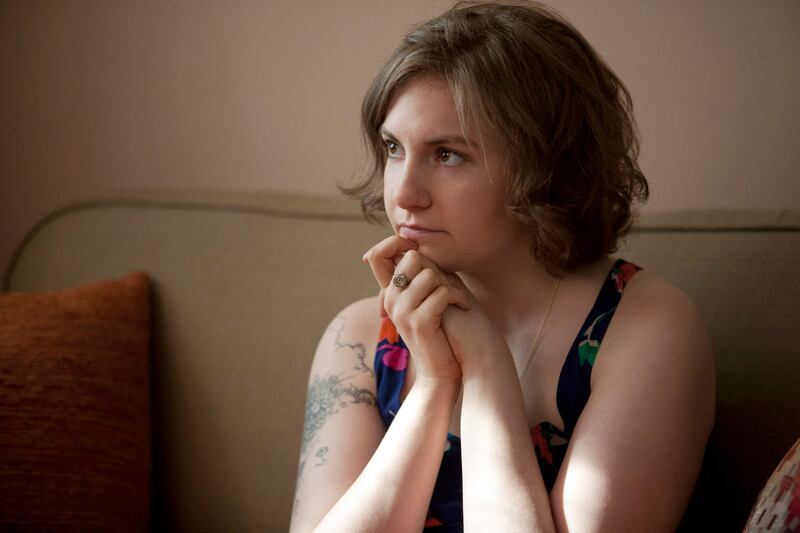The über-hip HBO drama Girls has taken a step away from irony and entered the bright lights of dim reality. Just when we all figured that Hannah (Lena Dunham) was going to live out one of those blessed lives as someone who seems nice and approachable, gives to the right charities, and says the right things about politicians and offshore oil drilling, we realize she suffers. According to reports, or at least her own tweets, she has obsessive-compulsive disorder—and the real thing, not OCD the cute, prissy condition where you line up your paper clips.

In last week’s and this week’s episodes, we’ve learned that Hannah needs everything to happen in series of eight (or 64) and probably needs a left-right balance as well. It is, we are told, the “stress” of success—her book is coming along nicely, sort of—that tips her back into the OCD she fought as a child. Her parents notice her “counting” while at a fancy dinner and arrange for her to see first her old pediatrician, then a real shrink who tells her she has a classic presentation—before mentioning his own bestselling book.
There’s more, as Dunham moves the problem from perhaps a bit superficial to the more realistic and disturbing. She inserts a Q-tip into one ear and traumatizes it, causing a bloody mess and giving the episode its great line (“I heard hissing” after the puncture). Then comes the requisite sitcom schlemiel-like ER visit with a doctor and some drops and some close-ups. But in the episode’s last scene, she grabs the difficult third rail of mental illness once again, showing us Hannah placing a new Q-tip into the other ear. And counting.
With this scene, it appears Dunham is willing to portray real OCD, not the scrubbed and kinda fun version where people are cleaning their hands at inopportune times or else hopping over cracks in the sidewalk. She is trying—I hope—to pull the mental illness away from the lighthearted and silly, and show it as the anguishing compulsion that requires immediate attention and a rain-dance-like repetitive activity to maintain the ordered rows and columns necessary to assure that true darkness remains way over there. The depiction seems promising enough that Dunham already has gotten thumbs-up from people involved with OCD treatment and research.
OCD, like many psychiatric conditions, is both helped and distorted, if not deformed, by popular awareness provided by a show like Girls. We—all of us—have traces of OCD, just as we all are a bit manic at times, ADHD now and again, depressed intermittently, delusional, narcissistic. We all dance the entire DSM IV (and its coming progeny, the Roman numeral–free DSM 5) right down the line. But this doesn’t mean we have mental illness. Rather we have a strange moment, a bad habit, a twist or turn, but not mental illness. Mental illness—real OCD, for example—is only a far far distant cousin of the cute personality quirk.
The exposure from Girls surely will be salutary by getting OCD the disease out in the open. But too much familiarity also may remove the sting of the illness, make it another celebrity turn. Leonardo DiCaprio has it! And Cameron Diaz! And Donald Trump, too! With Lena Dunham on board, could it become the next red-hot thing?!
At its worst, the ubiquity of psychiatric diagnoses threatens to convert these grim, suffocating illnesses into nothing more than tossed-off adjectives. “Oh, he’s just a little OCD” is said lovingly if not admiringly, thereby removing both the patient and the family from the tremendous pain that surrounds the true disease.
As Hannah’s, and perhaps Dunham’s, symptoms are revealed in further episodes, we can only hope that Girls avoids the winks and shortcuts that mark so much of the portrayal of mental illness. These episodes of Girls appear promising. They are ready to show, I hope, that real mental illness is not eradicated by a pill or a better diet, by three visits to a shrink, or by a thoughtful walk along the beach. Rather, symptoms come and go at the worst times, happiness is brutally interrupted by the intrusion of irrational behavior, and to survive, people such as Hannah must learn their way around their own tiresome and tiring personality.






